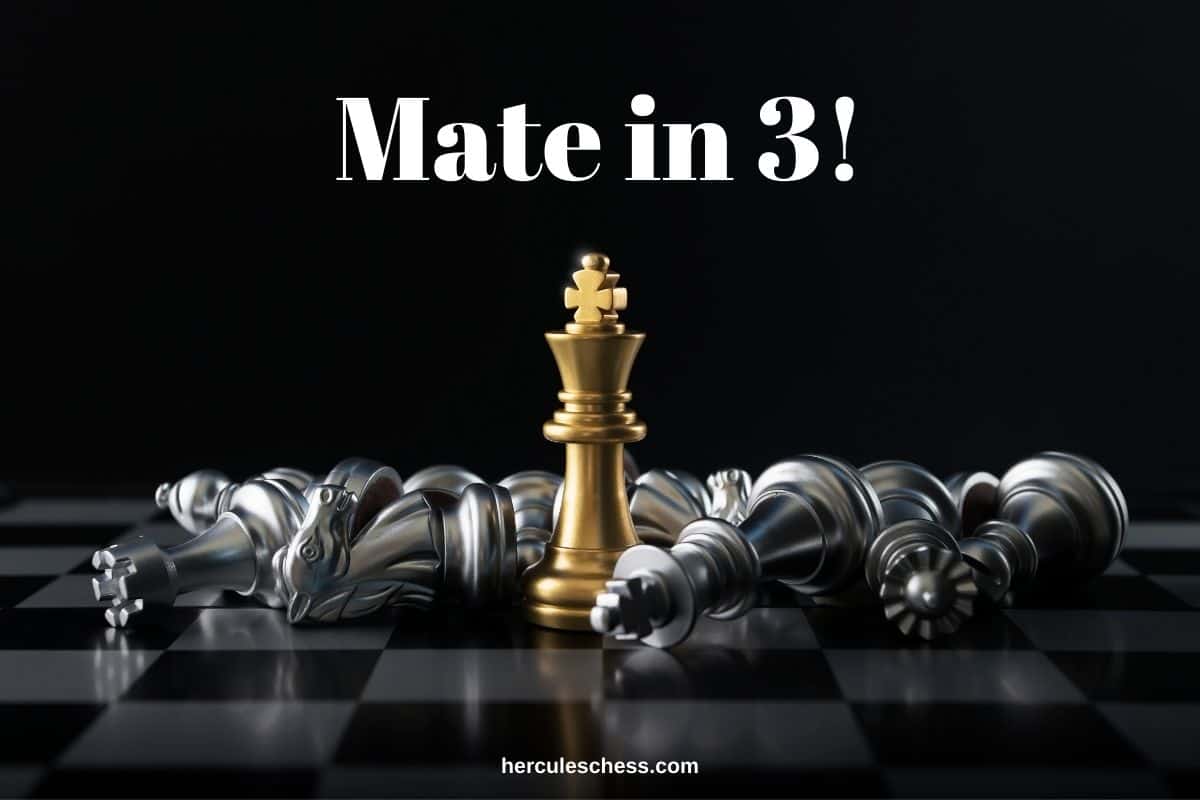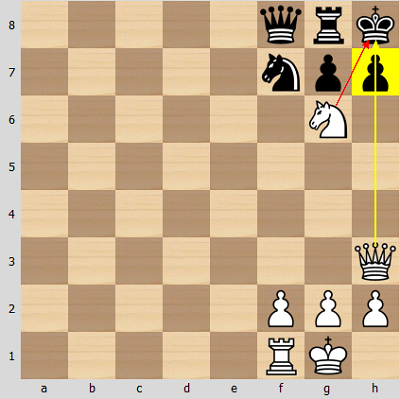
Here too, the failure of the chess player handling black pieces to decide on effective early moves leads to their quick downfall at the hands of an alert white player. Whereas the first two methods we have discussed above focused on checkmates reached after captures, the current formula does not involve the capture of a chess piece at all. The third way white can play to win a chess match after just three rounds is again dependent on a set of poor moves from the side of black. Recommended Read: 10 Fastest Chess Moves To Win

Playing the pawns positioned in the flanks of your board at the start will open up your king to imminent threats from your opponent. Most chess pundits would agree that taking control of the central squares at the outset of a chess match can go a long way in ensuring that the end victory is yours. If you commit grave eros like the one we have seen here, a clever opponent will instantly go for the kill at your expense.Ī great idea would be to focus on your centrally placed pawns at the beginning of a chess match. While playing actual games, remember that it can be deadly to open up your king early on in a game. The moment this takes place, white checkmates the black king. The alert white chess player then grabs the excellent opportunity presented to them by playing the white queen to square h5. Balck then plays its g-pawn to g5, thus causing a big opening in front of its unguarded king. The second round of moves sees white capture the black pawn at f5. It all begins when white plays e4 and black responds with f5. The second technique through which white can checkmate black in three moves depends on the creation of weak squats around the black king following poor decision-making. Here too, white will grab a black piece to win the match. In this section, we shall look at another way to achieve checkmate in three great movements. The method discussed above revolved around the procedure to checkmate black in three moves by capturing a rival piece. So, whenever you compete against anyone, look for the loopholes in your rivals’ decision-making, and jump onto opportunities when you can see you can make the most of the errors they committed. Recommended Read: Chess Notation – The Language Of Chessįor the realization of this gameplay, it will take the player handling the black pieces to commit fatal errors during the match.


This would mean that the black king would have no place to go and be comprehensively cornered. At this juncture, it is up to the white chess player to take advantage of the situation and deliver a checkmate by capturing the black pawn stationed at e5. Subsequently, white responds by moving the queen piece to the h5 block.Īfter that, black would commit a blunder by moving its king to the e7 block. In reply to this, let us presume black would play its e-pawn to e5. To win a chess match in just three moves playing white, one has to start by moving the e-pawn to the e4 square/tile. Once you are thorough with both the techniques on ‘How to Win Chess in 3 Moves’, you will undoubtedly become a more dangerous chess player than many would be afraid to take on! We shall take each of them individually for closer perusal. The first takes the help of a capture, and the second does not require a capture. This article will discuss how chess players can defeat their rivals by applying only three moves.Ĭan you win chess in three moves? Two methods exist by which a person can win a chess game in three movements. Then there is the ‘Fool’s Mate’ that takes only two actions to finish a game. Even though it is rare, there is a way of finishing a game of chess early.Ī popular method applied by several chess players worldwide is the ‘Scholar’s Mate’, which allows a chess player to beat their opponent in only four moves. So, when you know the title of today’s topic – ‘How to Win Chess in 3 Moves’, you must have a sense of disbelief. In televised events, you may have witnessed two contenders struggling to find the lethal move that would finish off the game.īut most often than not, chess games take long, tedious hours to see the end.

On average, a chess game takes hours before reaching its conclusion. Most of us connect chess with long hours of intense mental battles.


 0 kommentar(er)
0 kommentar(er)
